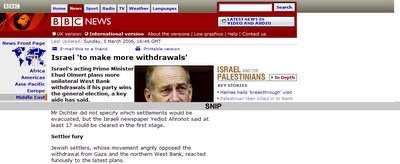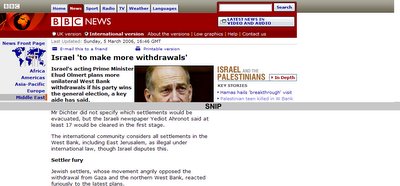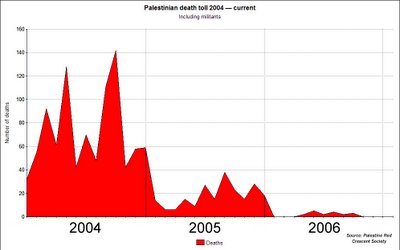The Roman Catholic prelature Opus Dei has written an
open letter to Sony on the subject of the conversial
Da Vinci Code film, a letter in which one can read the following:
Some of the media have specifically written that Sony is considering the possibility of including at the start of the film a disclaimer making it clear that this is a work of fiction, and that any resemblance to reality is pure coincidence. An eventual decision of Sony in this direction would be a sign of respect towards the figure of Jesus Christ, the history of the Church, and the religious beliefs of viewers.
Opus Dei has informed Sony that it considers that the inclusion at the start of the film of a disclaimer making it clear that it is a work of fiction “would be a sign of respect towards the figure of Jesus Christ, the history of the Church and the religious beliefs of viewers.”
How does BBC News title the story?
Group demands Da Vinci disclaimer — yes, “demands”; the BBC states that, by informing Sony that it would appreciate a disclaimer at the start of the film, Opus Dei “demands” one. In the article, one can read:
Catholic group Opus Dei has asked for a disclaimer to be placed on the film of The Da Vinci Code, released next month.
The organisation said it had written to Sony Pictures executives in Japan to ask the studio to emphasise that the film was a work of fantasy.
As can be read in Opus Dei’s open letter, it is not asking for anything, merely telling Sony that it considers that a disclaimer at the start of the film emphasising that it is a work of fantasy would be a sign of respect to the Catholic faith. Quite conveniently, BBC News doesn’t link to
the letter in question, so that it can freely spin the story as it wishes, most probably to create a parallel between the reaction of Catholics to The Da Vinci Code film and that of Muslims to the Muhammad cartoons.












